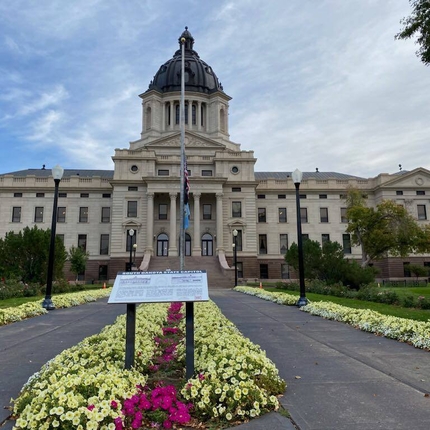“Veto Day”—South Dakota’s last legislative day—was held March 30, and due to social distancing restrictions, legislators met electronically to wrap-up the session. In addition to regular end-of-session business, lawmakers heard several emergency bills related to the COVID-19 crisis.
Nine emergency bills were passed and three bills failed. The bills included granting the governor emergency powers, allowing officials to delay local elections, waiving the minimum number of instructional hours for public schools, waiving the one-week waiting period for reemployment benefits, creating a small business loan fund, and more.
We’ve outlined the new bills below, as well as links to resources for citizens and business owners who may be financially impacted by the COVID-19 crisis.
COVID-19-related bills
House Bill 1295: revise provisions regarding contagious disease control and enforcement and to declare an emergency. Passed
HB 1296: revise the authority of the governor in times of a disaster, act of terrorism, or emergency and to declare an emergency. Passed
HB 1297: grant the secretary of health certain authority during a public health emergency and to declare an emergency. Failed
HB 1298: provide for the postponement of certain elections and to declare an emergency. Passed
Senate Bill 187: revise certain provisions regarding reemployment assistance benefits in response to Coronavirus Disease 2019 and to declare an emergency. Passed
SB 188: account for educational opportunities provided to students during a state of emergency and to declare an emergency. Passed
SB 189: provide exemptions from certain requirements for the 2019-2020 school year and to declare an emergency. Passed
SB 190: revise certain driver licensing requirements to allow for an extension during a statewide emergency or disaster and to declare an emergency. Passed
SB 191: provide emergency authority to counties, community improvement districts, and municipalities in the event of a public health crisis and to declare an emergency. Failed
SB 192: create the small business economic disaster relief subfund, to provide for the transfer of certain funds into the subfund, to authorize the Economic Development Finance Authority to make a grant to the subfund, to provide for the continuous appropriation of the subfund, and to declare an emergency. Passed
SB 193: revise Senate Bill 38, An Act to revise the General Appropriations Act for fiscal year 2020, as previously enacted by the Ninety-fifth Session of the South Dakota Legislature. Passed
SB 194: revise certain requirements for absentee ballots and to declare an emergency. Failed
Gov. Noem indicated a special session will likely be held in June to address changes to the current state budget, as well as next year’s, due to the effect of COVID-19. Funding for several programs could be affected.
Resources for those financially impacted by the COVID-19 crisis
South Dakota Reemployment Assistance
Applicants are encouraged to file online as the influx of claims has swamped the phone lines. The one-week waiting period for reemployment benefits has been waived as of the week of April 4.
South Dakota Small Business Relief Fund
Businesses or nonprofits with fewer than 250 employees are eligible to apply for zero-interest loans between $5,000 and $75,000.
Paycheck Protection Program
A loan program designed to provide a direct incentive for small businesses to keep their workers on the payroll. The Small Business Administration will forgive loans if all employees are kept on the payroll for eight weeks and the money is used for payroll, rent, mortgage interest, or utilities.
Paying for utilities
Many utilities, including energy, water, and internet services, have indicated they will work with individuals who have difficulty making payments during the COVID-19 crisis. Contact your utility provider immediately if you anticipate difficulty paying utility bills.
Center for Rural Affairs Rural Disaster Resources
We are committed to continuing our work to support rural communities during this unprecedented time. We welcome your input and communication with us as new challenges unfold.




